Power Wheelchair VS Power Scooter: Choosing the Right Mobility Device
Posted by Tom Lee on
When it comes to regaining independence and mobility, individuals with physical limitations often turn to power wheelchairs VS power scooters as viable Mobility Device. Both devices offer a means to navigate through daily life with ease, but they cater to different needs and preferences.
Understanding the differences between Power Wheelchair VS Power Scooter is crucial in making an informed decision about which mobility device best suits individual requirements.
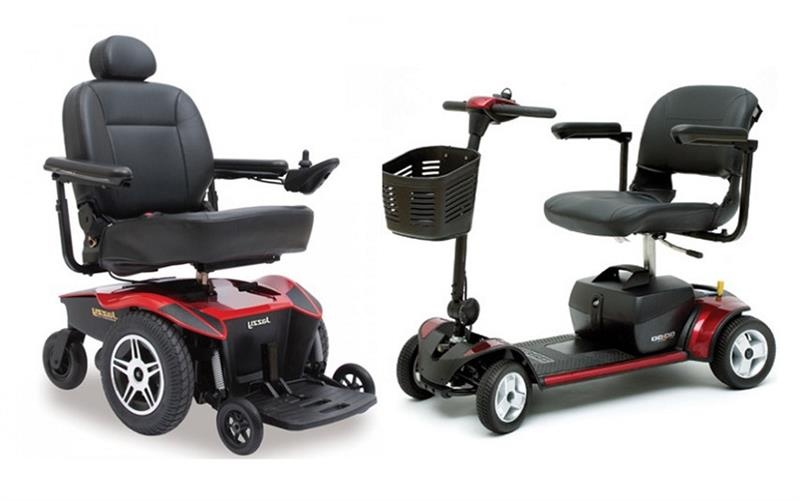
Power Wheelchair VS Power Scooter-Power Wheelchair
Power Wheelchair VS Power Scooter:A electric wheelchair is designed for individuals who require full-time mobility assistance. It is a motorized chair with a stable base, four or six wheels, and a steering system. Power wheelchairs are typically operated using a joystick, and they offer a high degree of maneuverability, making them suitable for indoor and outdoor use. These devices are often recommended for individuals with significant mobility impairments, as they provide a comfortable and supportive seated position, along with customizable features such as tilt, recline, and elevating leg rests. Power wheelchairs are also compatible with various seating and positioning options, allowing for a personalized fit to accommodate specific physical needs.
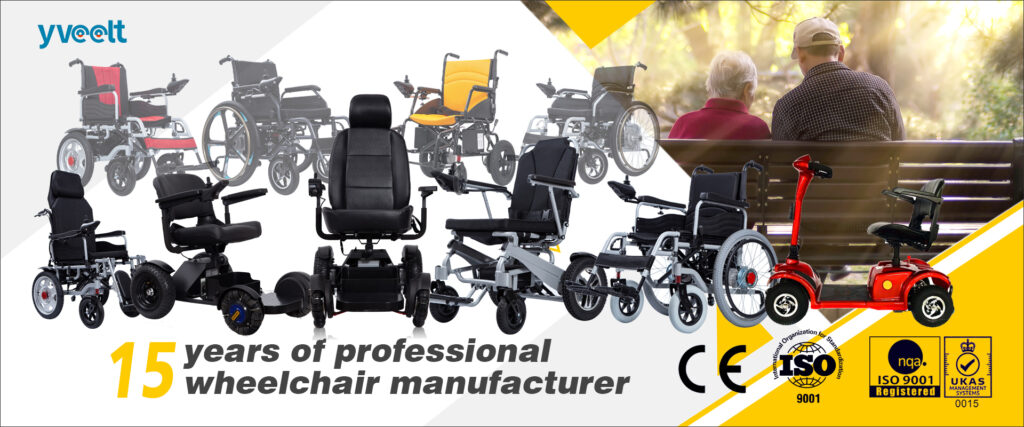
Power Wheelchair VS Power Scooter-Power Scooter:
On the other hand, power scooters are designed for individuals who have some mobility but may struggle with walking long distances. These devices feature a seat, a flat base, handlebars or a steering tiller, and are typically equipped with three or four wheels. Power scooters are ideal for individuals who can walk short distances but require assistance for extended outings or activities. They are well-suited for outdoor use and are often chosen for their ease of use and portability. Many power scooters can be disassembled for transport, making them convenient for travel and storage. Additionally, some models offer features such as swivel seats, baskets, and adjustable tillers to enhance user comfort and convenience.
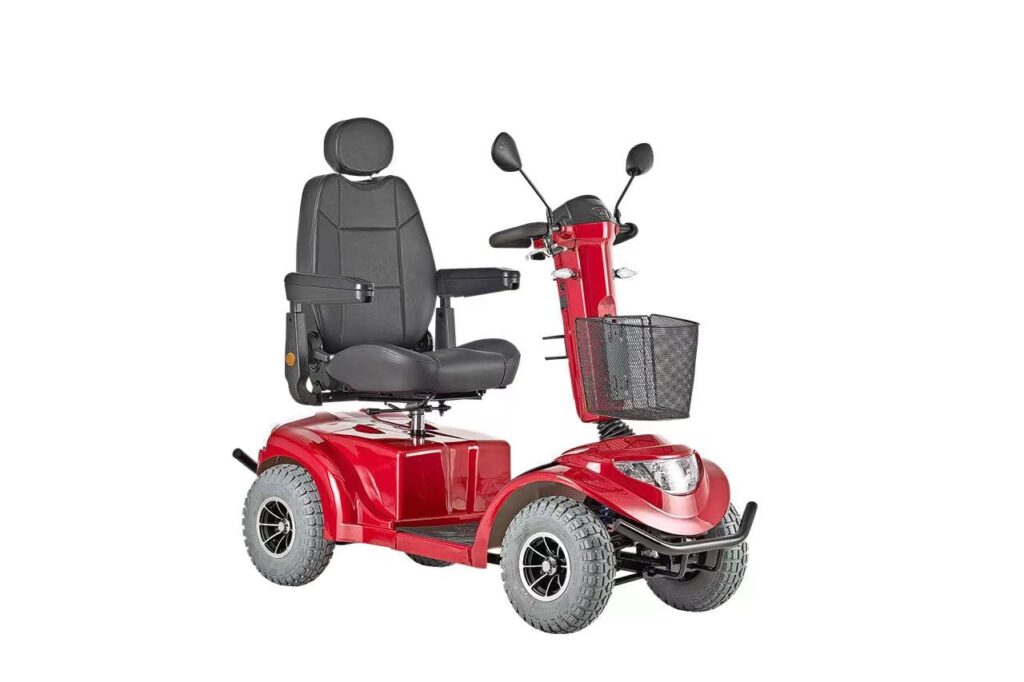
Factors to Consider:
When deciding between Power Wheelchair VS Power Scooter, several factors should be taken into account. The individual’s specific mobility needs, lifestyle, living environment, and intended usage are crucial considerations. For instance, individuals with limited upper body strength or trunk control may benefit more from a mobility electric wheelchair, as it provides greater support and stability. Conversely, those who seek a mobility device primarily for outdoor activities or occasional use may find a power scooter to be a more suitable option due to its ease of maneuvering and transport.
Furthermore, the availability of support and maintenance services, as well as insurance coverage and financial considerations, should also be factored into the decision-making process. Consulting with healthcare professionals and mobility specialists can provide valuable insights and recommendations tailored to individual requirements.
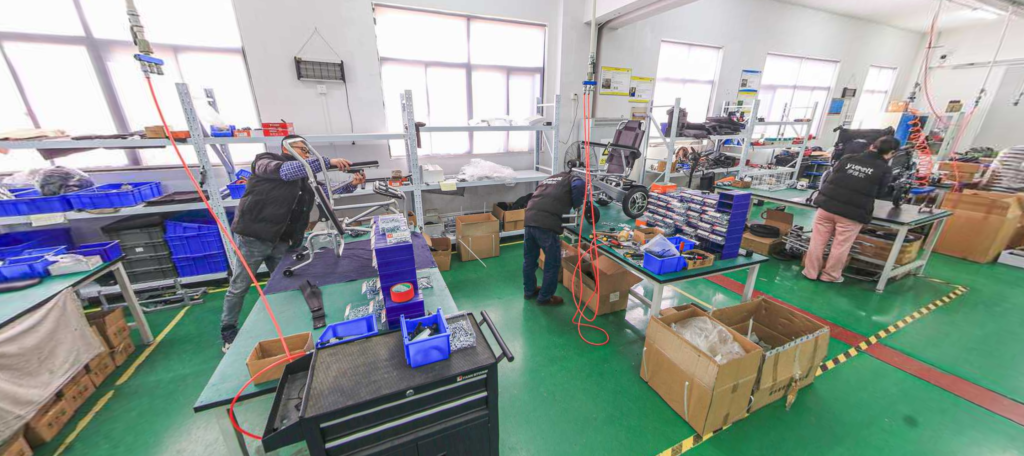
In conclusion, both Power Wheelchair VS Power Scooter offer valuable solutions for individuals with mobility challenges, and the choice between the two depends on the user’s specific needs and preferences. By carefully evaluating the features, benefits, and limitations of each device, individuals can make an informed decision that enhances their mobility and quality of life.
Ultimately, the goal is to select a mobility device that promotes independence, comfort, and safety, enabling individuals to navigate their surroundings with confidence and ease.
Power Wheelchair VS Power Scooter: Making an Informed Choice for Mobility
When considering the choice between Power Wheelchair VS Power Scooter, it’s essential to delve deeper into the specific features and benefits of each device. Here are some additional points to consider:
Maneuverability and Terrain:
Foldable Lightweight Electric wheelchairs are well-suited for navigating tight spaces and indoor environments, thanks to their compact design and exceptional maneuverability. They offer a smaller turning radius, making them ideal for use in homes, offices, and other confined spaces. In contrast, power scooters are better equipped for outdoor use and can handle varied terrain, including sidewalks, parks, and shopping centers. Their larger wheels and sturdy construction make them suitable for traversing uneven surfaces and longer distances.
Seating and Posture Support:
One of the key differences between electric power wheelchairs and power scooters lies in their seating and posture support features. Power wheelchairs are designed to provide customizable seating options, including tilt, recline, and elevating leg rests, which can be crucial for individuals with specific positioning needs. These features promote comfort, pressure relief, and proper posture, particularly for those who spend extended periods in the device. Power scooters, while offering a comfortable seat, may not provide the same level of customizable support for individuals with complex positioning requirements.
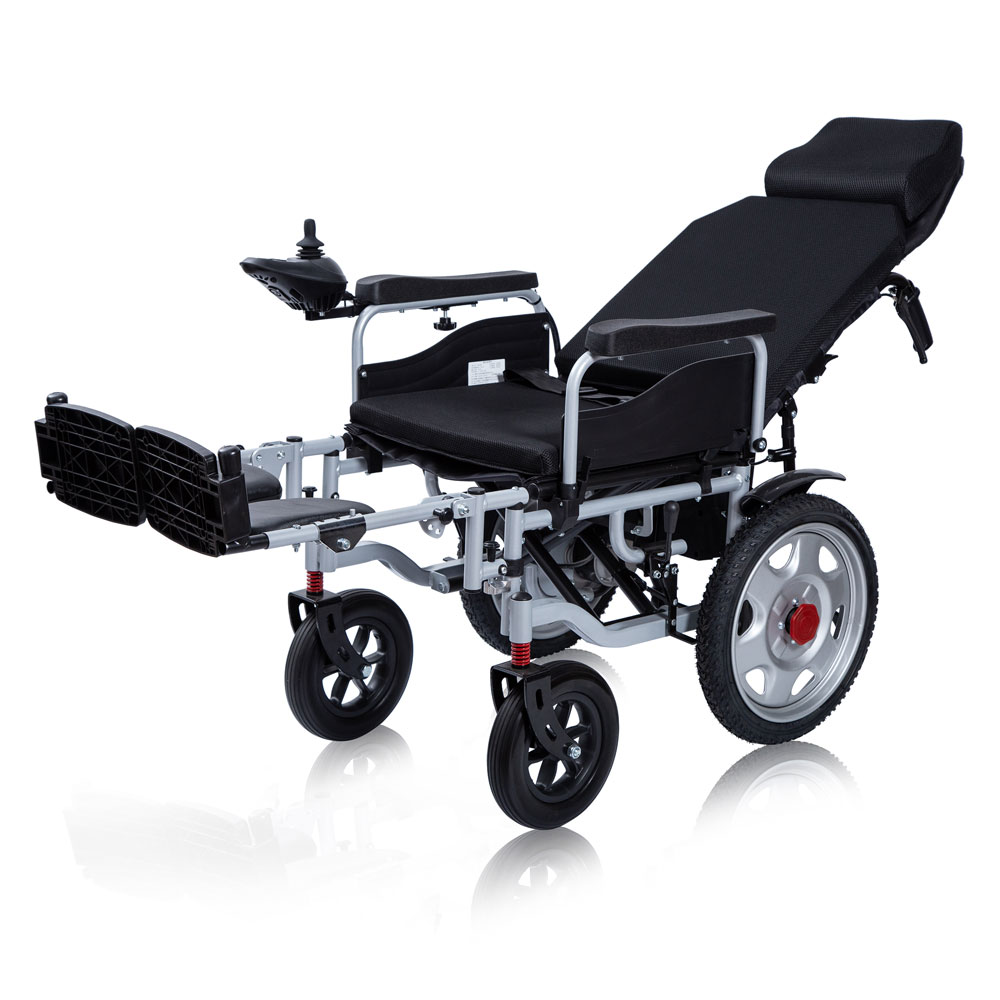
Portability and Transport:
For individuals who lead active lifestyles and require a mobility device that can be easily transported, power scooters may be the preferred choice. Power Wheelchair VS Power Scooter: Many power scooter models are designed to be disassembled into manageable pieces, allowing for convenient storage in a vehicle’s trunk or for travel purposes. This portability makes power scooters an attractive option for those who value independence and enjoy exploring different locations. Power wheelchairs, while offering advanced features and support, may be less portable and require additional considerations for transportation.
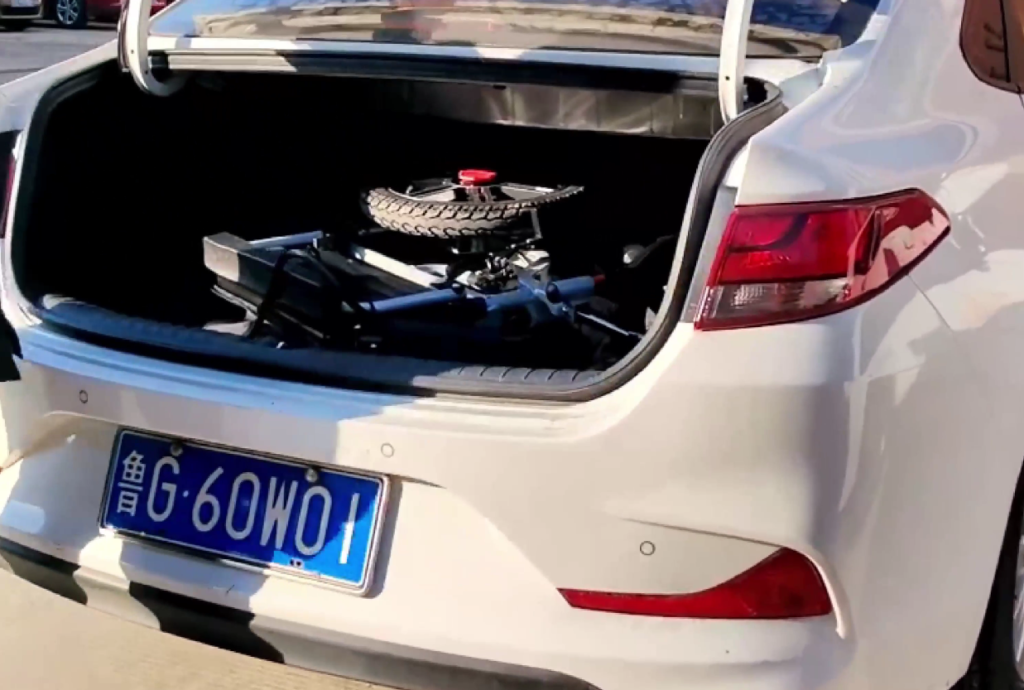
User Interface and Controls:
The user interface and controls of Power Wheelchair VS Power Scooter differ significantly. Power wheelchairs typically utilize a joystick or alternative control method to navigate, making them suitable for individuals with limited hand dexterity or strength. In contrast, power scooters are operated using handlebars or a tiller, Power Wheelchair VS Power Scooter which may be more intuitive for individuals who are accustomed to steering similar devices, such as bicycles or motorcycles.
Ultimately, the decision Power Wheelchair VS Power Scooter should be based on a comprehensive assessment of individual needs, lifestyle preferences, and environmental considerations. By carefully evaluating the unique features and functionalities of each device, individuals can make an informed choice that aligns with their mobility goals and enhances their overall quality of life. Consulting with healthcare professionals, mobility specialists, and experienced users can provide valuable insights and guidance in selecting the most suitable mobility device.

